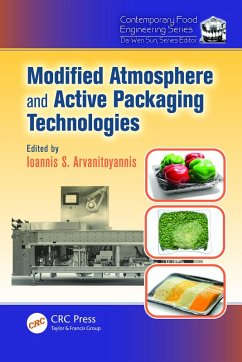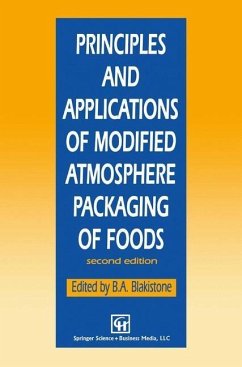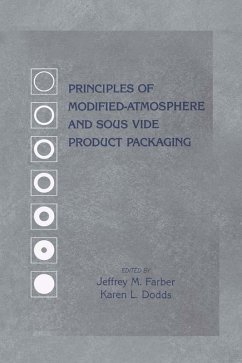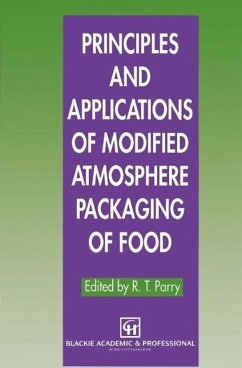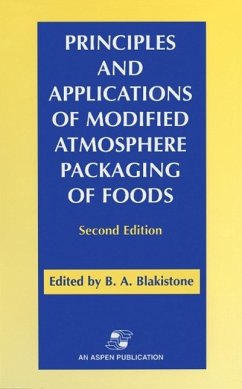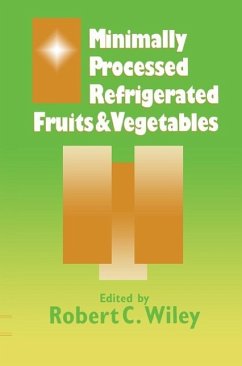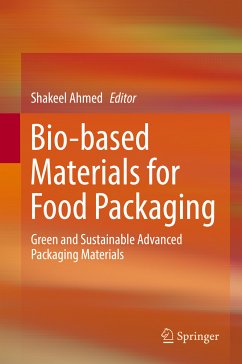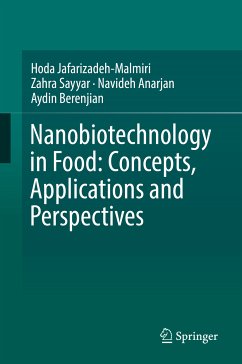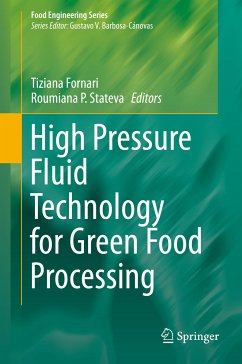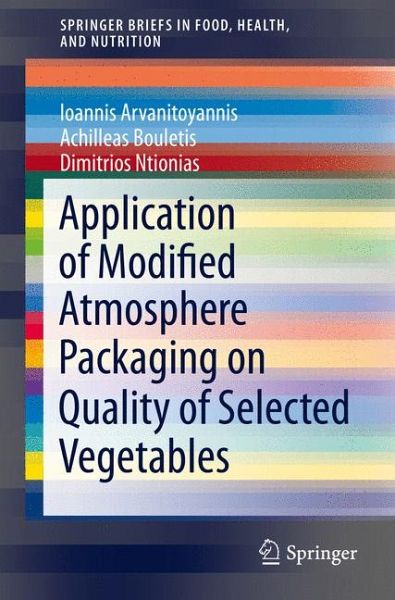
Application of Modified Atmosphere Packaging on Quality of Selected Vegetables (eBook, PDF)
Versandkostenfrei!
Sofort per Download lieferbar
40,95 €
inkl. MwSt.
Weitere Ausgaben:

PAYBACK Punkte
20 °P sammeln!
This Brief critically reviews the applied techniques in all the studied vegetables and summarizes the effect of modified atmosphere packaging (MAP) in all the quality parameters. In a brief introduction chemical and microbiological parameters that affect shelf life are mentioned, followed by a definition of modified atmosphere packaging. The referred vegetables are categorized into 10 categories: roots, tubers, leafy vegetables, fruits-vegetables, bulbs, stems and shoots, flowers, seeds, fungi and other. The effect of selected MAP applications on the shelf life of the vegetables is also highli...
This Brief critically reviews the applied techniques in all the studied vegetables and summarizes the effect of modified atmosphere packaging (MAP) in all the quality parameters. In a brief introduction chemical and microbiological parameters that affect shelf life are mentioned, followed by a definition of modified atmosphere packaging. The referred vegetables are categorized into 10 categories: roots, tubers, leafy vegetables, fruits-vegetables, bulbs, stems and shoots, flowers, seeds, fungi and other. The effect of selected MAP applications on the shelf life of the vegetables is also highlighted. Along with atmosphere modification, several storage parameters such as temperature, several pretreatments, film permeability or light and dark storage conditions are studied and their interaction on the quality of the product is also taken under consideration. The increasing demand for healthier and "safer" foods has led the food industry in pursuit of storage technologies that will serve the primary role of storage life prolongation but with no sacrifice on nutritional value and without the presence of additives. MAP is a storage technique that has already proven to be effective in extending the shelf life of the product by reducing respiration rate and preserving all its quality characteristics. Due to many physiological factors that affect the shelf life of minimally processed vegetables (respiration rate, ethylene production, maturation and ripening) the selection of the ideal storage parameters (gas mixture, storage temperature, packaging film, and treatments prior to packaging) of MAP is a challenging procedure and must be planned carefully.
Dieser Download kann aus rechtlichen Gründen nur mit Rechnungsadresse in A, B, BG, CY, CZ, D, DK, EW, E, FIN, F, GR, HR, H, IRL, I, LT, L, LR, M, NL, PL, P, R, S, SLO, SK ausgeliefert werden.




